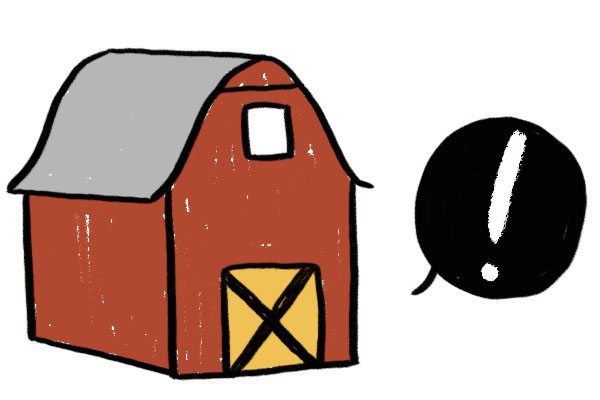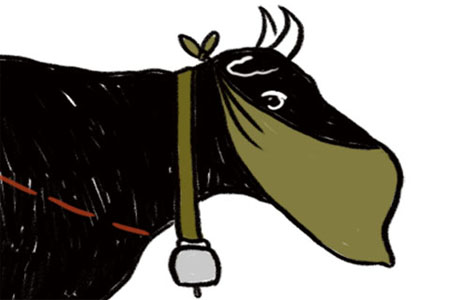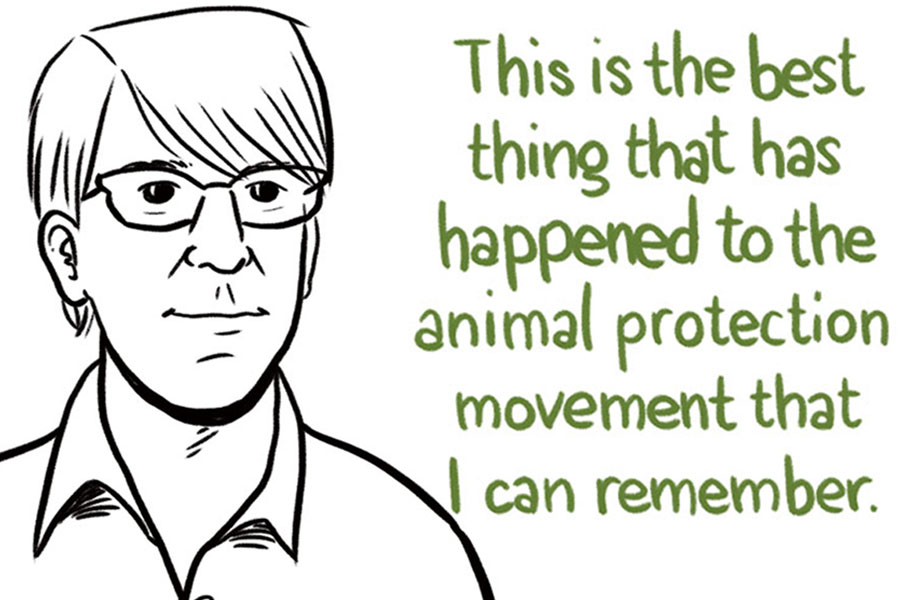“Farm protection” or “ag-gag” laws aim to outlaw the kinds of undercover investigations that have resulted in massive meat recalls, plant closures, and even criminal charges.
Specifically, they’re designed to deter the kind of work done by people like Lindsay.
For two years Lindsay (not her real name) has worked for a national animal advocacy nonprofit that sends investigators to take jobs at farms and slaughterhouses across the country, each for a few weeks at a time, in an effort to root out abuses.
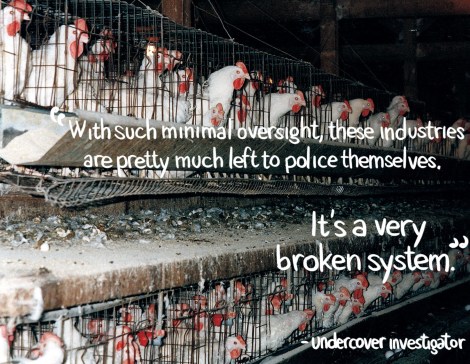
“I use a hidden camera to film the day-to-day activities in these facilities while I am there working. I take detailed notes on what I witness and document,” she tells me. “With such minimal [government] oversight, these industries are pretty much left to police themselves, so it’s not uncommon to find acts of abuse or negligent behavior that may violate state or federal laws.”
When Lindsay works on one of these farms, she acts like any other employee — except for the secret documentation part. Under a slew of existing and proposed ag-gag laws, Lindsay would be committing at least two crimes: fraudulent employment and secret filming. “I do not work in the states that have passed ag-gag laws already, nor do any other investigators I know,” she says. “These laws are clearly intended to stop investigations like the ones that I do, and they in fact have that effect. It feels like a desperate move by industrialized agriculture.”
Desperate or not, industrialized agriculture is certainly aware of the impact of Lindsay’s work. Videos like the ones she records have taken down whole companies and spurred the prosecution of many abusers. They have also taken a bite out of Americans’ appetite for meat. A 2010 Kansas State University study [PDF] found that, “As a whole, media attention to animal welfare has significant, negative effects on U.S. meat demand.”
Ag-gag laws are a direct and calculated response to all this. Emily Meredith, communications director for the Animal Agriculture Alliance, a nonprofit industry advocacy group, admits that clandestine video has been “very effective” for advocacy organizations over the last 10 years.
“I’m not gonna deny that there are bad apples just like there are in every industry,” Meredith says. “But the majority of farm families do the right thing every day. These videos are really an unfair portrayal of the industry as a whole.”
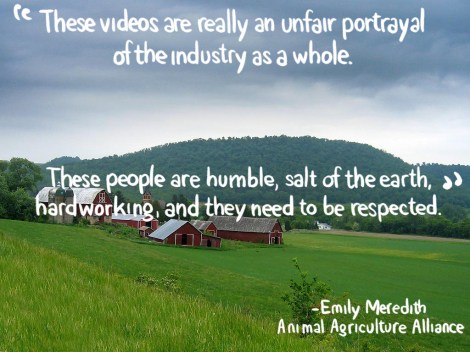
Meredith says activist videos are edited and manipulated to appear more damning in an effort to promote a “vegan agenda” by any means necessary — even using legal practices, such as piglet castration, to shore up allegations of illegal abuse. “Those tactics have become very popular and successful for the activist community in their fundraising efforts and in spreading misinformation about the industry,” she says.
As Meredith sees it, farm protection bills are a reasonable response to such an onslaught. Plus, by giving secret filmers a small window of time to turn their damning footage over to law enforcement, the laws should please everyone, right?
“[Activists] are trying to promote this legislation as ‘gagging’ when in fact all the legislation mandates that you report the abuse, which really goes to the heart of the issue,” Meredith says. “If you really cared about animal welfare would you even wait a second to report animal abuse? In my mind you wouldn’t be waiting at all.”
Lindsay and other activists argue that these investigations often require several weeks of documentation to establish patterns of abuse or criminality. And either way, they would be criminalized under many of the laws, regardless of whether or not they turned over their footage to law enforcement. As for publicizing legal practices like piglet castration, they say that while these practices may be legal, that doesn’t mean the public is comfortable with thinking about what sorts of pain their dinner may have endured.
“As larger numbers of people see these investigation videos, we are seeing major shifts,” says Lindsay. “People are demanding companies change their practices or they are moving away from animal products altogether.”
It’s obviously not what the meat industry wants to hear. “I think where this legislation is being introduced, the legislators in those states recognize that agriculture plays an important role in our national economy and in their state economy,” says Meredith. “They respect what these farm families are doing every day and they recognize how important it is to preserve their way of life and their family businesses.”
Meredith is optimistic that farm protection or ag-gag laws will “probably strongly deter” activists like Lindsay.
Lindsay doesn’t think that’s such a good thing: “The fact that the industry is going to such great lengths to prevent people from seeing what happens on farms and at slaughterhouses further proves that they have something to hide.”
